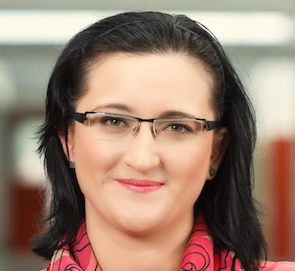Artificial Intelligence in Medicine II
Harvard - BMIF 203 and BMI 702, Spring 2026
Faculty Instructor
Curriculum Fellow
Week 1
Course overview, Introduction to NLP, Clinical NLP, Medical terminology challenges, Concept extraction from EHRs, Clinical trial matching.
- Jan 28
- LectureNLP I
- Slides, Reading List
- Jan 29
- QuizWeek 2 pre-class quiz (due Feb 4)
- Canvas
Week 2
Embeddings and their role in NLP, Transformers and BERT, Clinical BERT, Encoder-only and decoder-only architectures, Medical question-answering, Human-AI evaluation loops.
- Feb 4
- LectureNLP II Guest Lecturer: Dr. Grey Kuling
- Slides, Reading List
- Feb 5
- QuizWeek 3 pre-class quiz (due Feb 11)
- Canvas
Week 3
Natural language generation, Retrieval augmented generation (RAG), Chain-of-thought (CoT) prompting, Introduction to diffusion generative models.
- Feb 11
- LectureGenerative AI
- Slides, Reading List
- Feb 12
- QuizWeek 4 pre-class quiz (due Feb 18)
- Canvas
Week 4
Conversational agents, Multi-agent systems, Tool use, Reinforcement learning with human feedback (RLHF), Introduction to training reasoning models with human feedback and soft verifiers.
- Feb 18
- LectureAI Agents
- Slides, Reading List
- Feb 19
- QuizWeek 5 pre-class quiz (due Feb 25)
- Canvas
- Feb 20
- Course ProjectProject Proposals Due
- Canvas
Week 5
Understand various types of medical imaging data (radiology, oncology, pathology, and other imaging modalities), Introduction to medical imaging tasks: classification, regression, and segmentation, Convolutional neural networks (CNNs) and their role in medical imaging, Segmentation techniques and U-Net architecture.
- Feb 25
- LectureMedical Imaging I Guest Lecturer: Dr. Grey Kuling
- Slides, Reading List
- Feb 26
- QuizWeek 6 pre-class quiz (due Mar 4)
- Canvas
Week 6
Vision foundation models. Development and validation of medical imaging interpretation models, Model robustness and performance across diverse populations.
- Mar 4
- LectureMedical Imaging II Guest Lecturer: Dr. Grey Kuling
- Slides, Reading List
- Mar 5
- QuizWeek 7 pre-class quiz (due Mar 11)
- Canvas
Week 7
Explainability and interpretability in medical AI, Feature importance and Shapley values, Bias and fairness in biomedical AI, Introduction to mechanistic interpretability.
- Mar 11
- LectureTrustworthy AI
- Slides, Reading List
- Mar 12
- QuizWeek 8 pre-class quiz (due Mar 25)
- Canvas
Week 8
Foundations of graph AI, Semi-supervised learning and label diffusion, Graph representation learning, Introduction to graph neural networks (GNNs), Neural message-passing models, Applications in gene function prediction, medical diagnosis, drug combination modeling, and antibiotic discovery.
- Mar 23
- Course ProjectMid-Term Student Presentations
- Canvas
- Mar 25
- LectureGraph AI I
- Slides, Reading List
- Mar 26
- QuizWeek 9 pre-class quiz (due Apr 1)
- Canvas
- Mar 27
- Course ProjectMid-Term Project Reports Due
- Canvas
Week 9
Knowledge graph learning, Structure-inducing pre-training, Relational foundation models.
- Apr 1
- LectureGraph AI II
- Slides, Reading List
- Apr 2
- QuizWeek 10 pre-class quiz (due Apr 8)
- Canvas
Week 10
AI for protein structure prediction and protein folding, Structure- and sequence-based co-design, Small molecule design, Conditional protein generation, Single-cell foundation models, Perturbation response prediction models.
- Apr 8
- LectureMolecular AI
- Slides, Reading List
- Apr 9
- QuizWeek 11 pre-class quiz (due Apr 15)
- Canvas
Week 11
Multimodal fusion beyond contrastive alignment, Early, late, and hybrid fusion strategies that combine modalities inside the model via cross-attention, co-embedding layers, and shared latent space, Generative multimodal modeling, includes image-to-text and text-to-image generation, masked multimodal modeling, and diffusion-based models.
- Apr 15
- LectureMultimodal AI
- Slides, Reading List
- Apr 16
- QuizWeek 12 pre-class quiz (due Apr 22)
- Canvas
Week 12
Disease risk prediction using generative transformers, Time series in healthcare, Longitudinal modeling of personal health datasets, Digital biomarkers and disease progression tracking, Health sensors.
- Apr 22
- LectureLongitudinal AI
- Slides, Reading List
- Apr 23
- QuizWeek 13 pre-class quiz (due Apr 29)
- Canvas
Week 13
Regulation of AI algorithms and devices in healthcare, FDA oversight and liability concerns, Prospective clinical trials for AI systems and AI-augmented devices.
- Apr 29
- Apr 29
- Course ProjectFinal Student Presentations
- Canvas
- May 1
- Course ProjectFinal Project Reports Due
- Canvas

